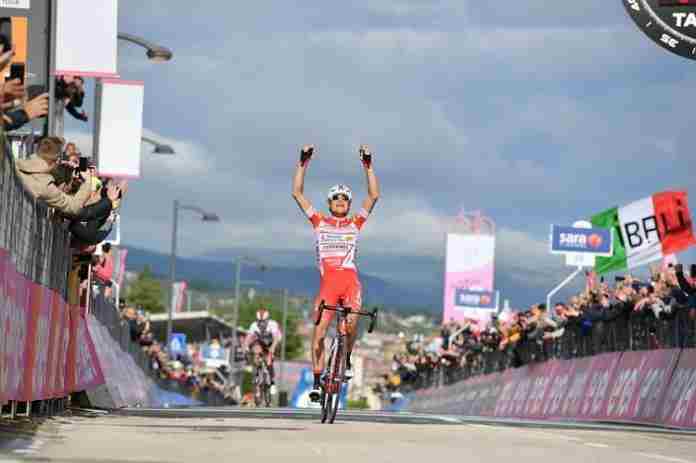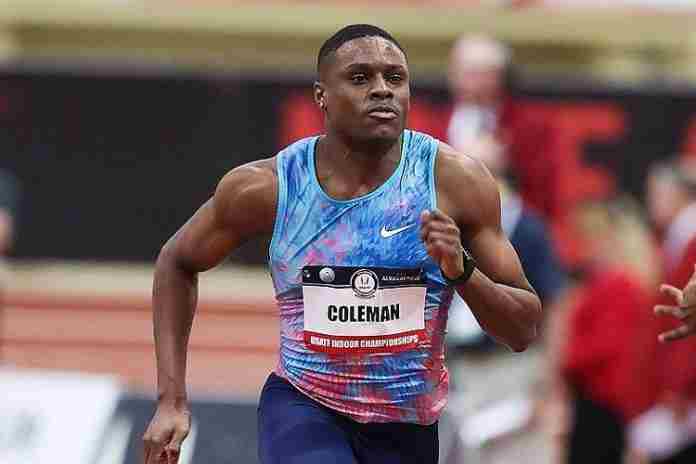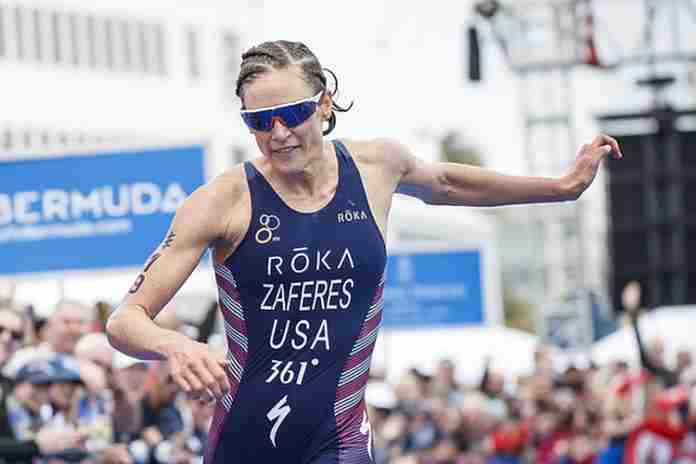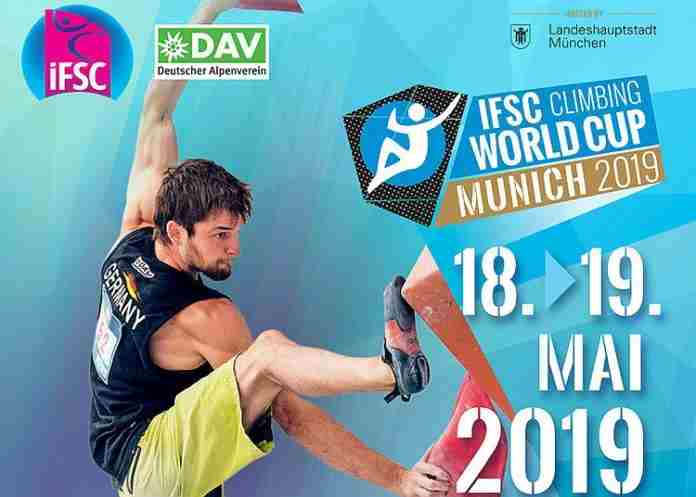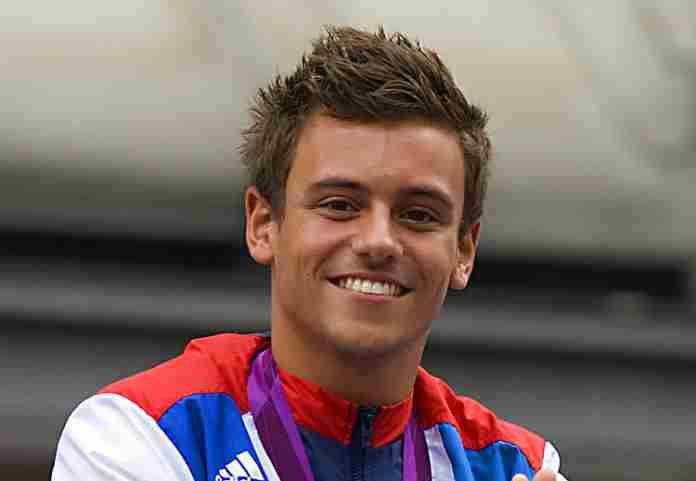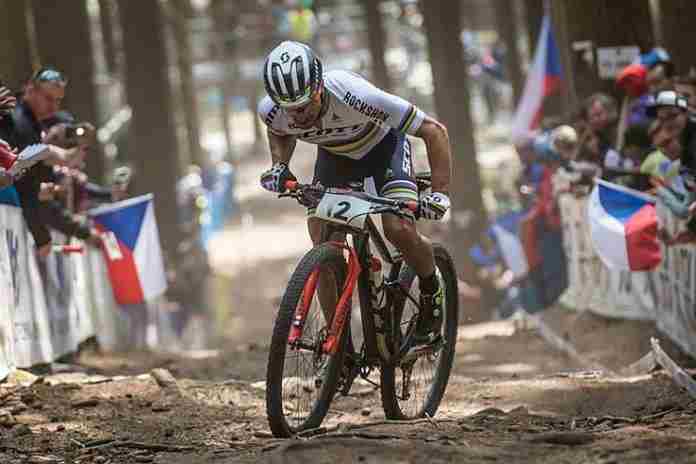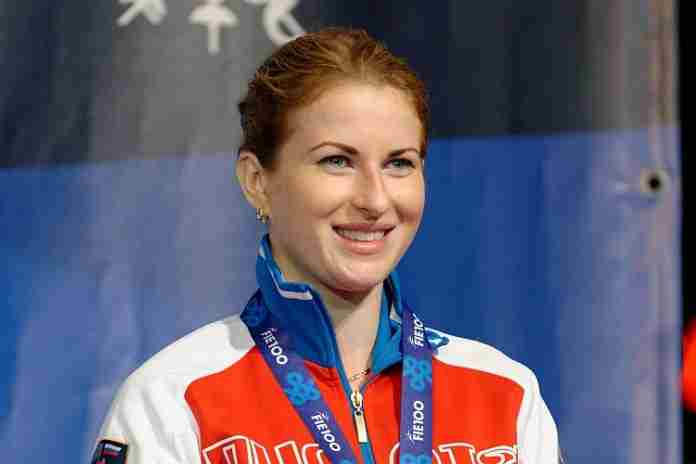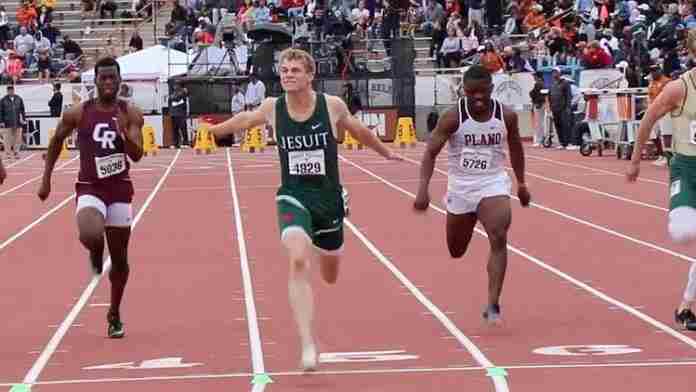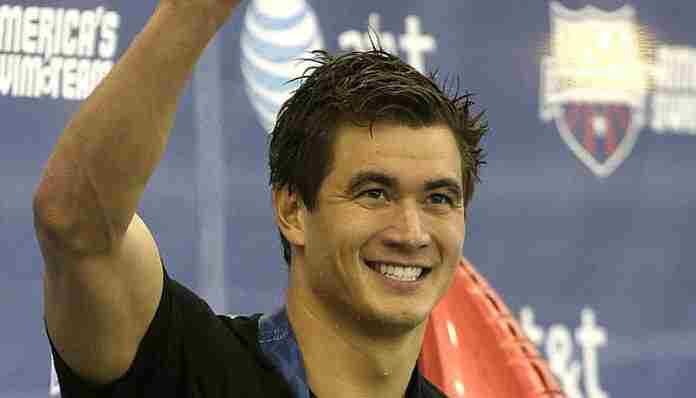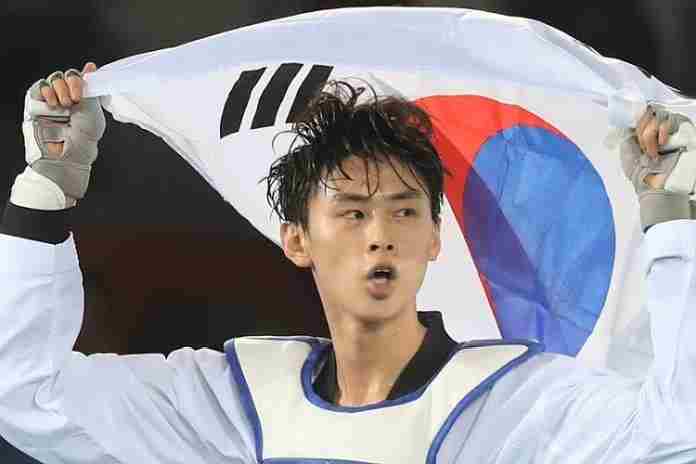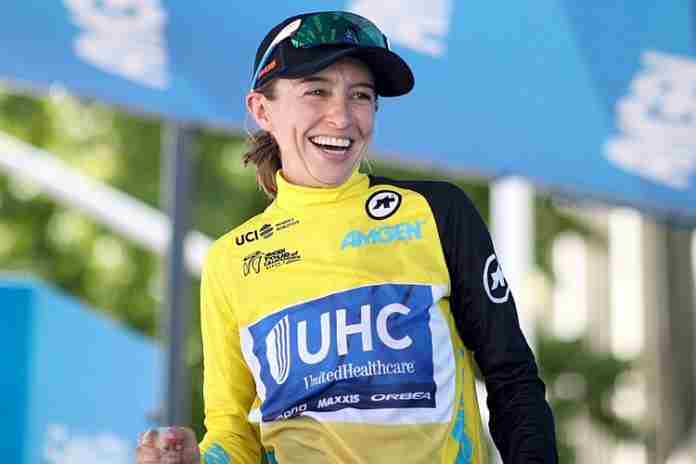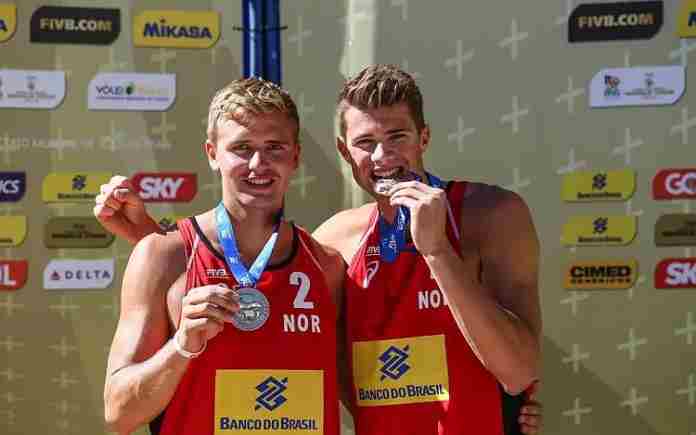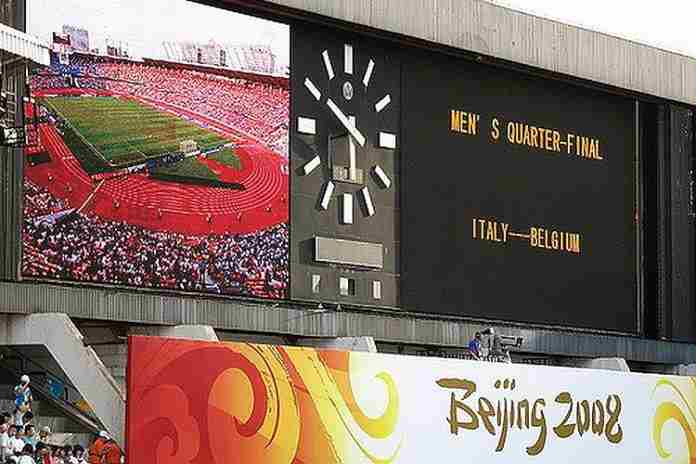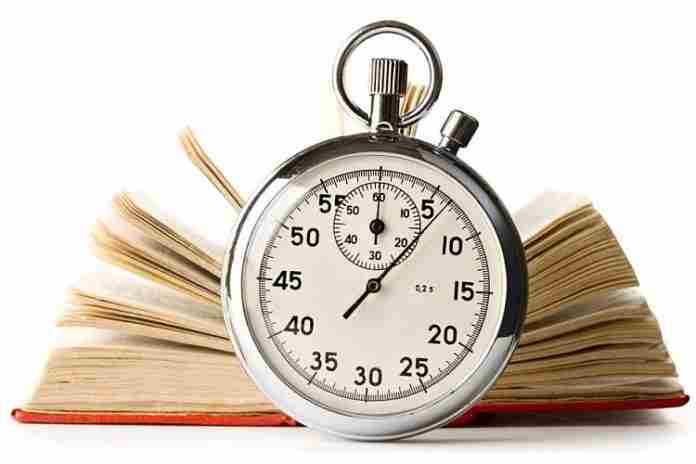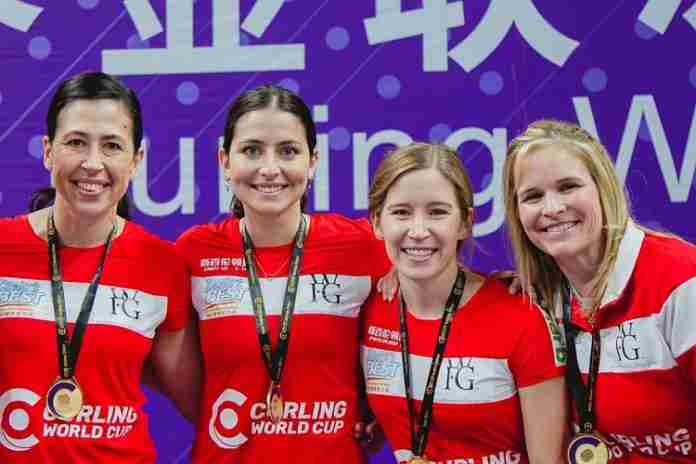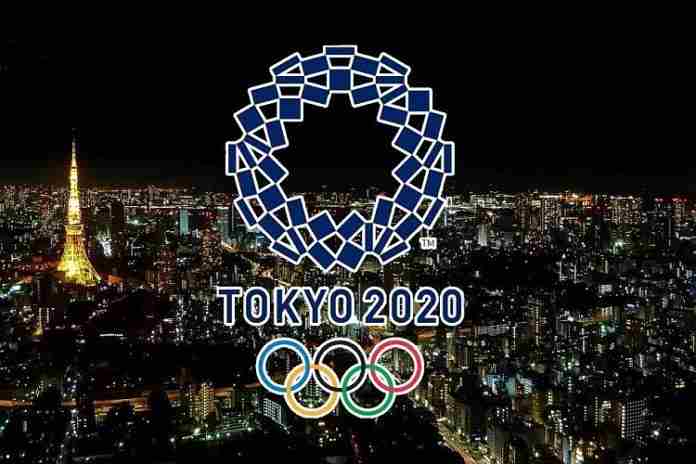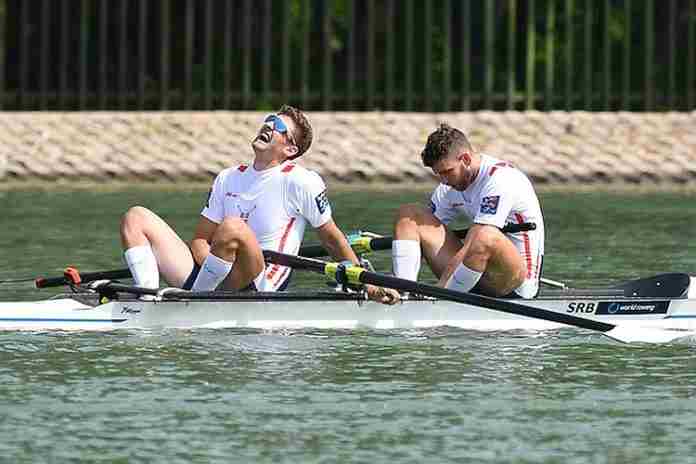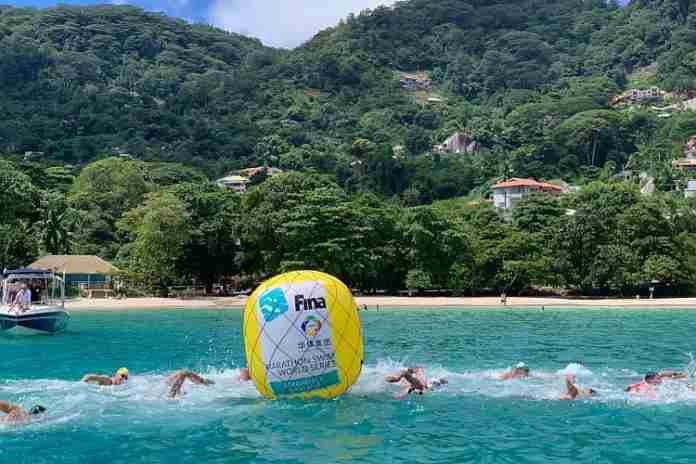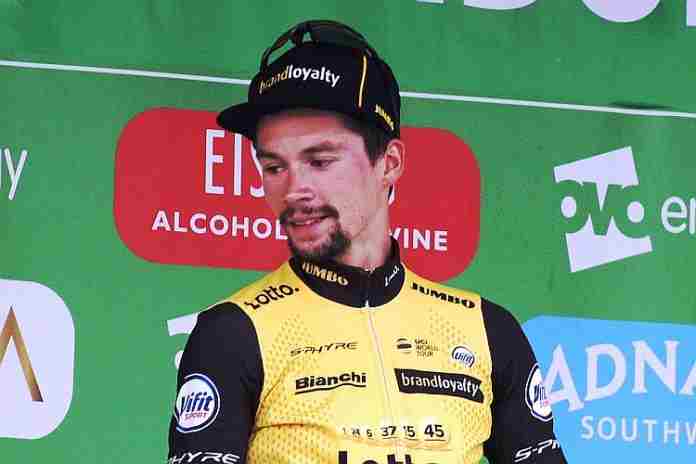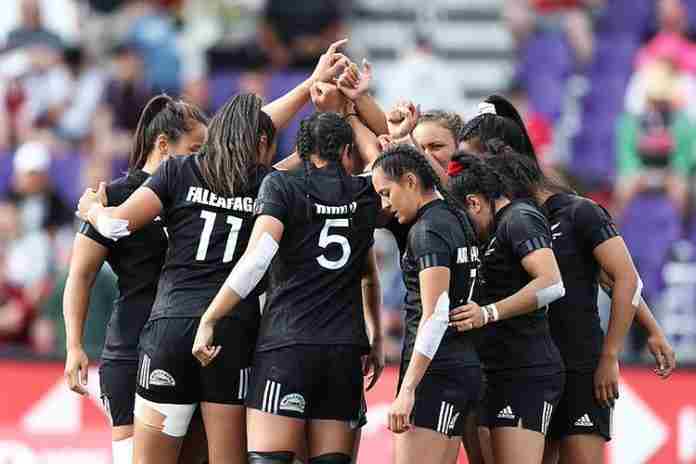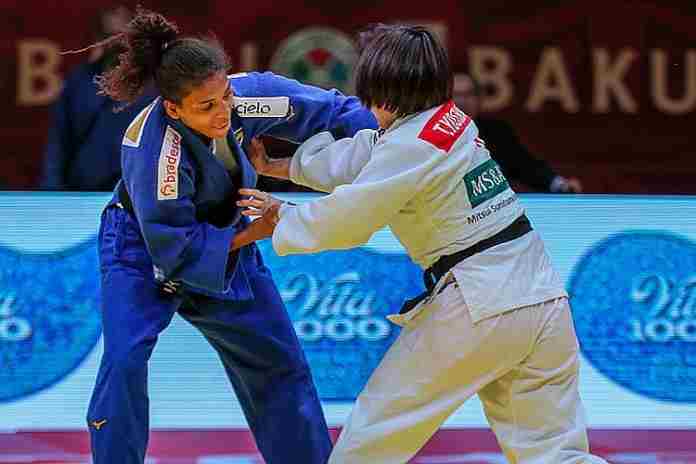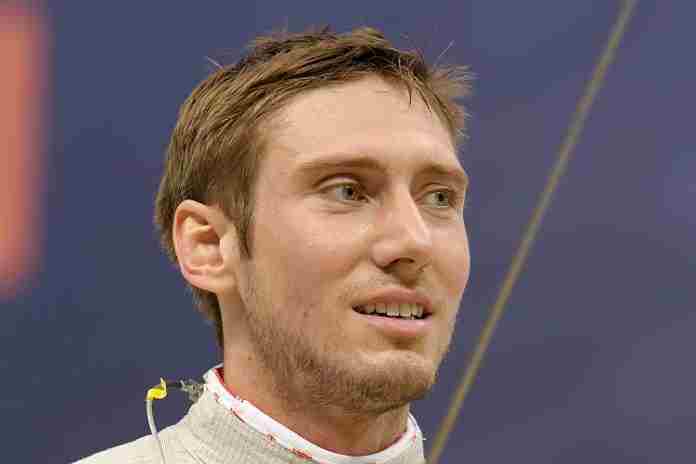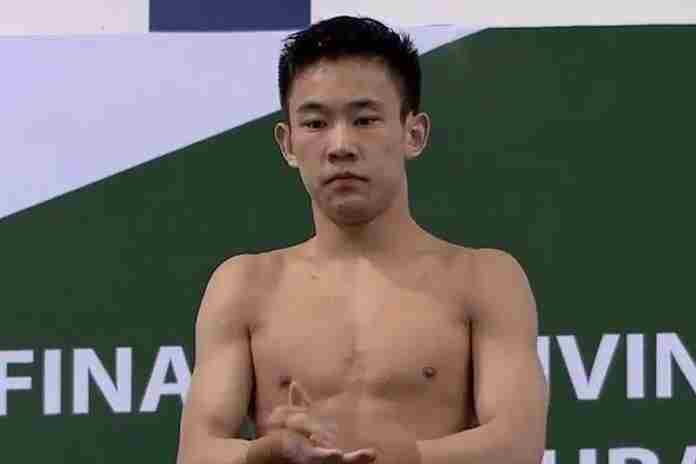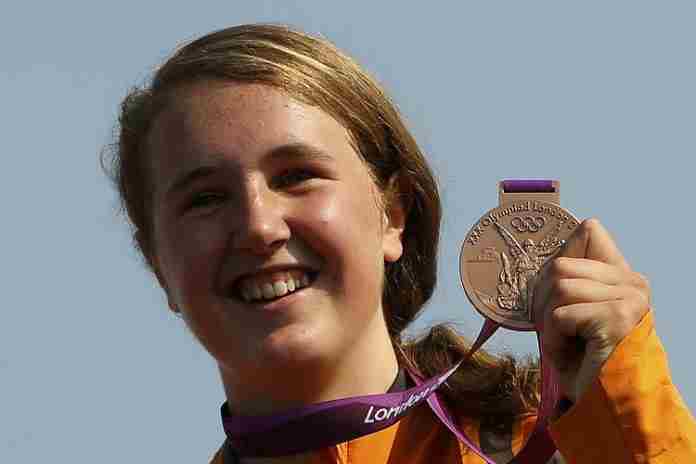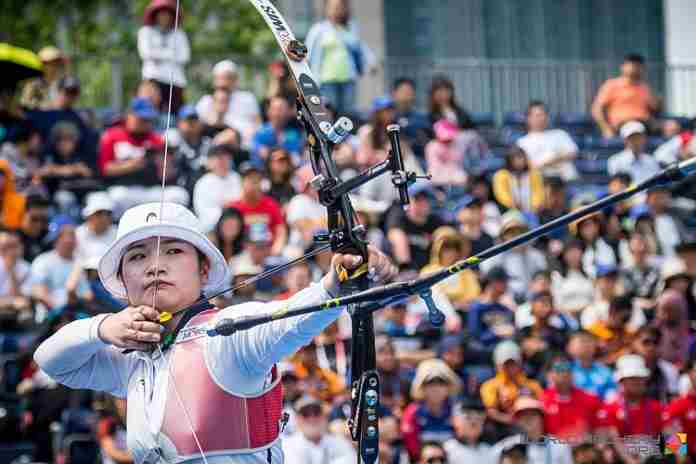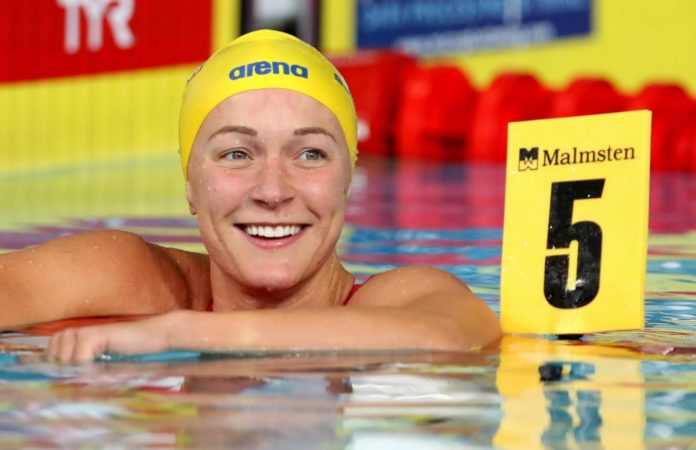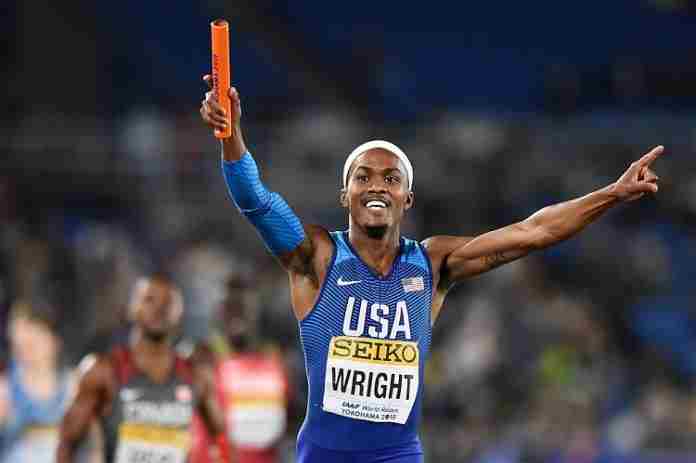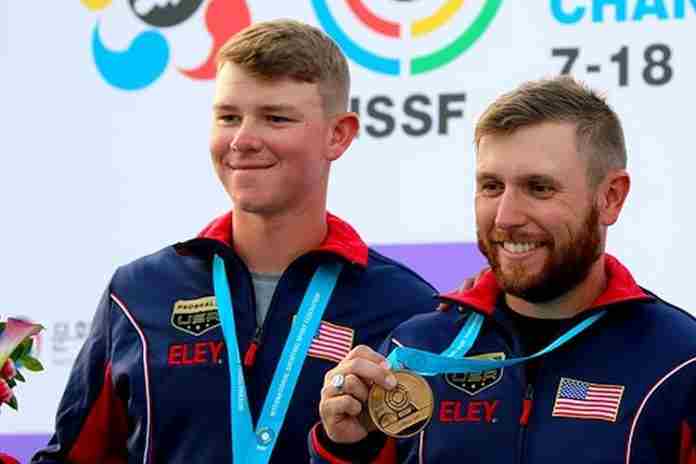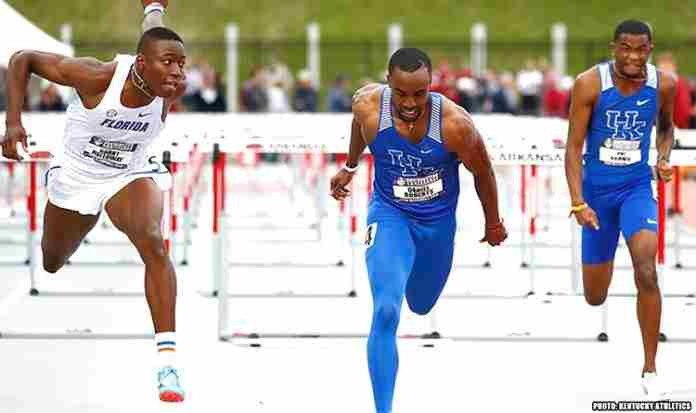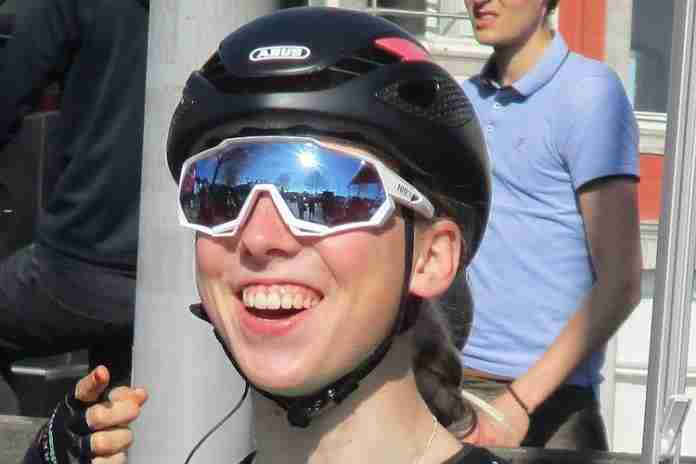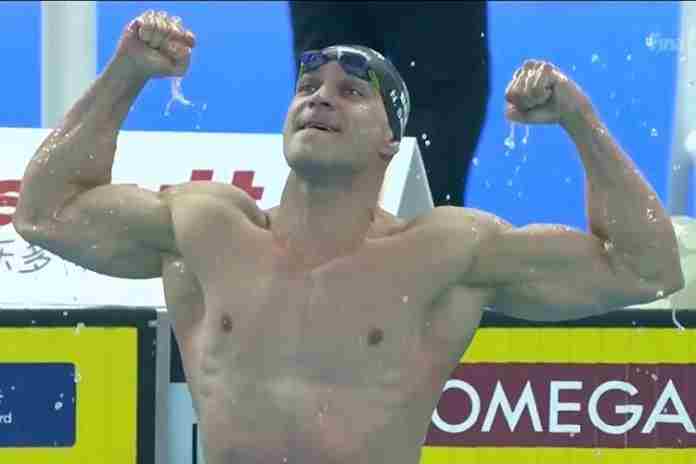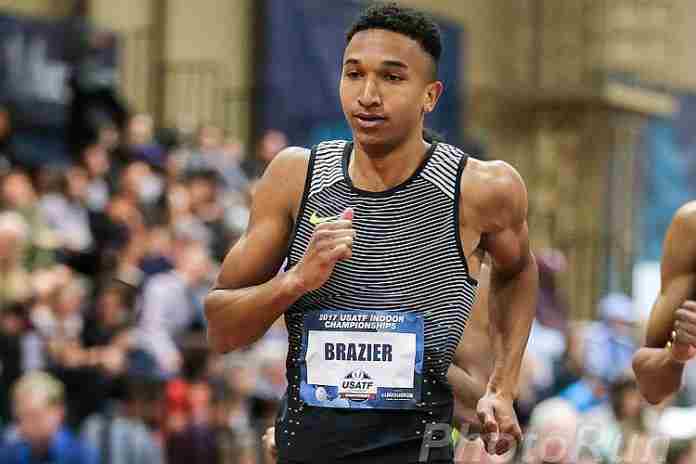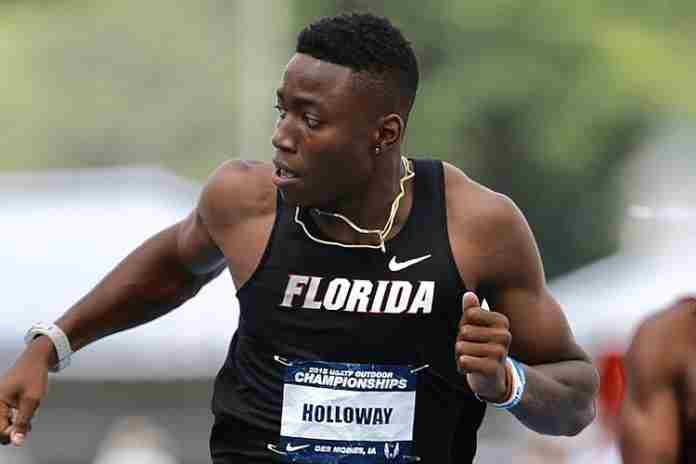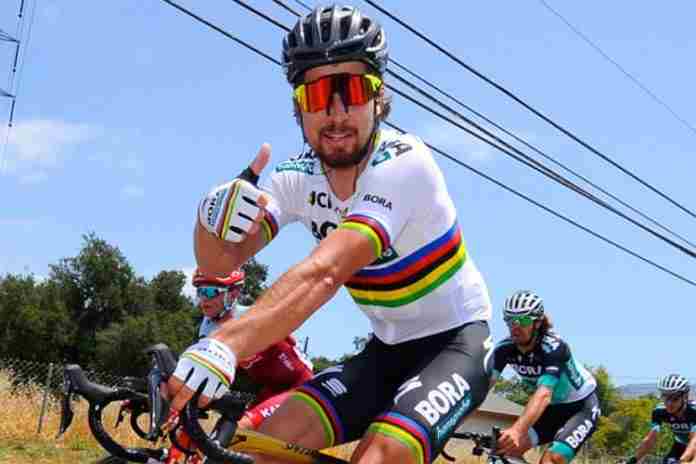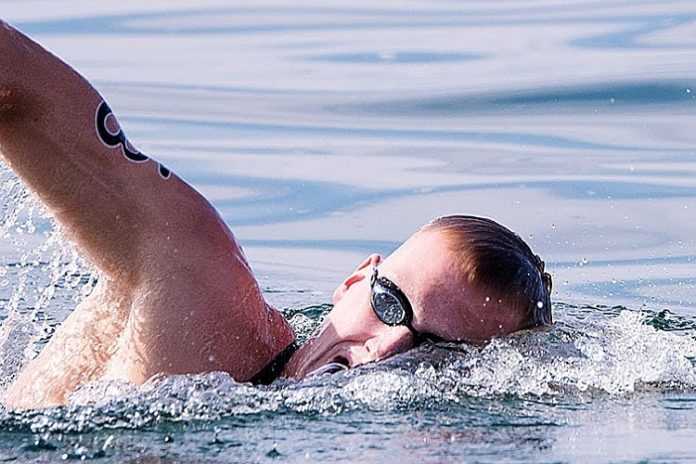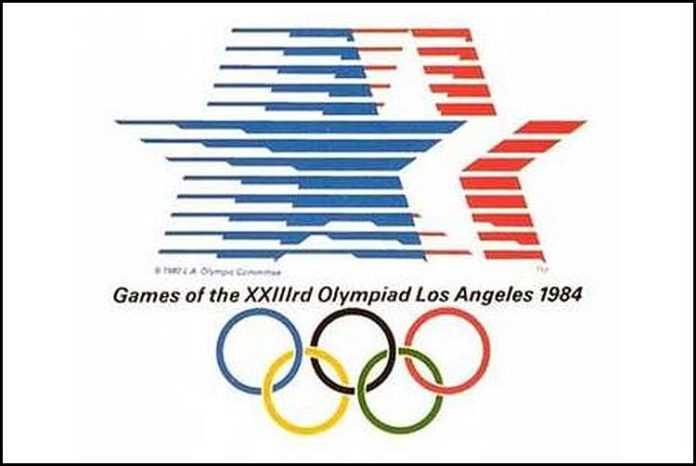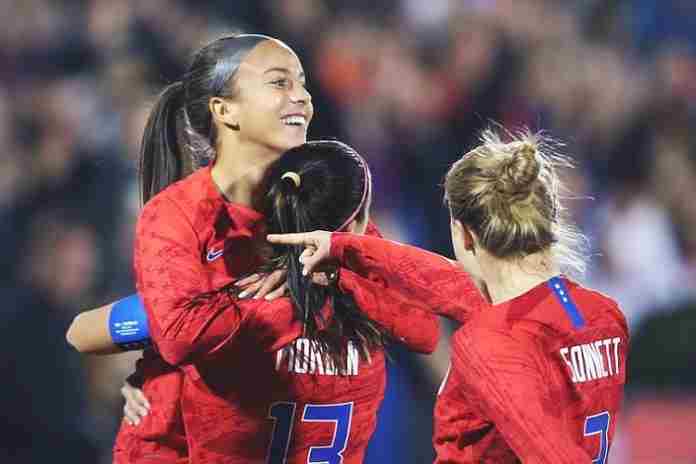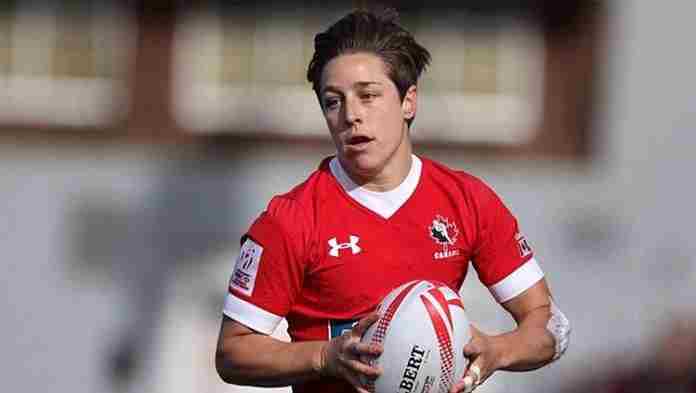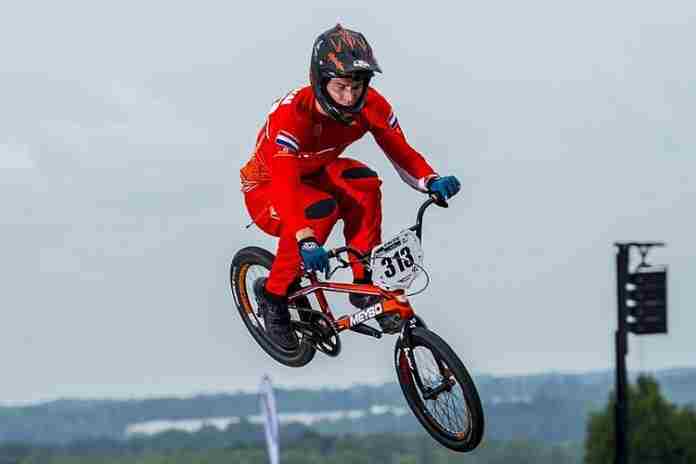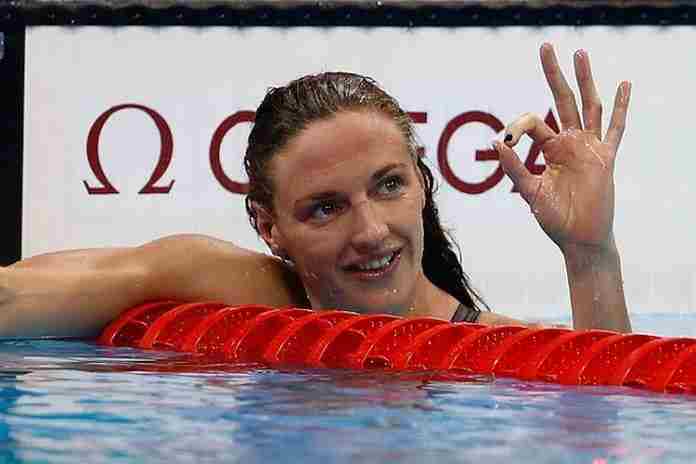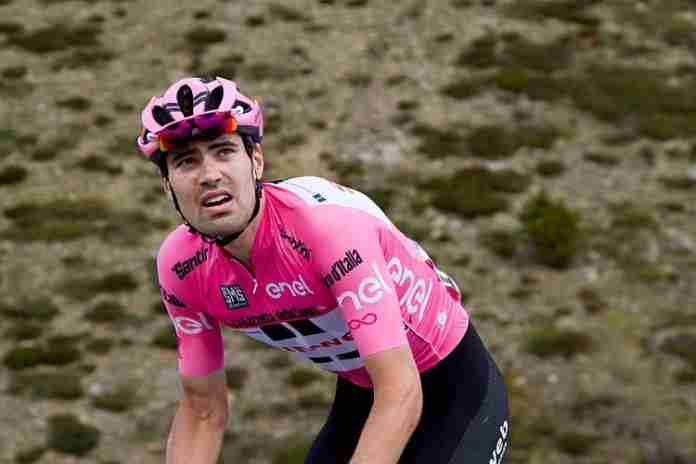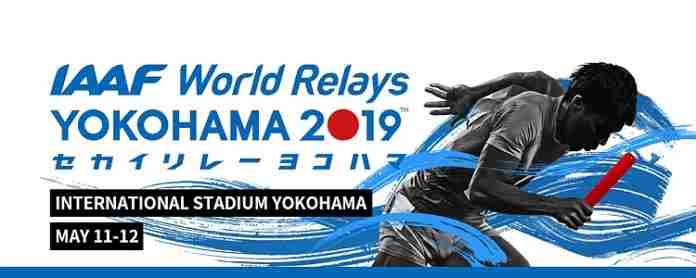Slovenia’s Primoz Roglic had been riding steadily through the first week of the Giro d’Italia after winning the opening Time Trial by 19 seconds, but then everything changed on Thursday’s stage from Cassino to San Giovanni Rotundo.
After sprint finishes in stages 2-3-4-5 – two of which were won by Germany’s Pascal Ackermann – the sixth stage covered 238.0 km with a brutal finishing climb over the final 32 km that included a run up the Coppa Casirinelle from about 22 m in altitude to 678 m in just 15 km and then another short climb before the finish.
Who wanted to try that?
It turned out that about a dozen riders were game, especially the Italian duo of Fausto Masnada and Valerio Conti. Masnada led the attack and Conti went right with him, with another 10-11 riders deciding to make the chase. They never faltered and the top 10 finishers were all within a minute and two more following another minute and a half behind.
Then there was a chasm back to the peloton, with another 90 riders bunched to the finish, including Roglic, Simon Yates (GBR), Vincenzo Nibali (ITA) and all the other contenders, more than seven minutes back!
That shook up the overall standings about a third into the race; now:
1. 25:22:00 Valerio Conti (ITA)
2. +1:41 Giovanni Carboni (ITA)
3. +2:09 Nans Peters (FRA)
4. +2:12 Jose Joaquin Rojas (ESP)
5. +2:19 Valentin Modouas (FRA)
Unexpected? Yes. Decisive? Not likely, as there is a lot more racing to go. But a great day for the Italian fans, who saw a countryman win for the first time in the 2019 Giro. There is another hilly stage on Friday, then a sprinter’s stage on Saturday and a second Time Trial on Sunday. The Maglia Rosa could shift again.
¶
At the Amgen Tour of California, windy conditions made the fifth stage hard to navigate in Ventura, California, as Ivan Garcia Cortina (ESP) came through the best in the final sprint to take the stage, while American Tejay van Garderen remained in the overall lead.
Slovakia’s Peter Sagan won a popular sprint victory in the opening stage – his 17th career stage win at the Amgen Tour – but then van Garderen just missed beating Kasper Asgreen (DEN) in the second stage and took over the yellow jersey.
After a runaway win for Remi Cavagna (FRA) in stage 3 – by 7:11 – and a sprint finish for Fabio Jakobsen (NED) in stage 4, the riders faced a heavy crosswind as they rode into Ventura in stage 5. The pelotron stayed cohesive over the hilly course and the final race to the finish turned into another mass sprint with Garcia Cortina registering his first-ever World Tour victory over Argentina’s Maxi Richeze.
That sets up Friday’s decisive sixth stage, a miserable stage of 127.5 km that climbs from the start for the first quarter of the race, descends and then climbs for the last half of the race up to Mt. Baldy, the highest point in the Los Angeles area. Van Garderen, who won the Amgen Tour in 2013 and was second last year, has very little margin for error:
1. 26:13:01 Tejay van Garderen (USA)
2. +0:04 Kasper Asgreen (DEN)
3. +0:06 Gianni Moscon (ITA)
4. +0:16 Tadej Pogacar (SLO)
5. +0:22 Maximilian Schachmann (GER)
There are 18 riders within a minute of Van Garderen; the order could be completely different after tomorrow.
¶
The Women’s Amgen Tour of California started on Thursday, with the 2017 winner – Anna van der Breggen (NED) – and defending champ Katie Hall (USA) expected to battle it out.
Dealing with the heavy winds, Van der Breggen decided to attack on the short final climb with 5 km remaining and broke the race open. She soloed into Ventura, winning by 18 seconds over the rest of the field. Asked about the strategy, she said that the attack “was better than a bunch sprint for us.”
Friday’s race, also finishing at Mt. Baldy, will likely decide the overall finish of the race. Said van der Breggen, “It’s a brutal stage, it’s a climb of 40 k,” and could only offer to do her best. Everyone else will have to do better than on Thursday, when the Dutch star took control.
Summaries so far:
UCI World Tour/Giro d’Italia
Italy ~ 11 May-2 June 2019
(Full results here)
Stage 1 (8.0 km Time Trial): 1. Primoz Roglic (SLO), 12:54; 2. Simon Yates (GBR), 13:13; 3. Vincenzo Nibali (ITA), 13:17; 4. Miguel Angel Lopez (COL), 13:22; 5. Tom Dumoulin (NED), 13:22. Also in the top 25: 21. Chad Haga (USA), 13:48.
Stage 2 (205.0 km): 1. Pascal Ackermann (GER), 4:44:43; 2. Elia Viviani (ITA), 4:44:43; 3. Caleb Ewan (AUS), 4:44:43; 4. Fernando Gaviria (COL), 4:44:43; 5. Arnaud Demare (FRA), 4:44:43.
Stage 3 (220.0 km): 1. Gaviria (COL), 5:23:19; 2. Demare (FRA), 5:23:19; 3. Ackermann (GER), 5:23:19; 4. Matteo Moschetti (ITA), 5;23:19; 5. Giocomo Nizzolo (ITA), 5:23:19.
Stage 4 (235.0 km): 1. Richard Carapaz (ECU), 5:58:17; 2. Ewan (AUS), 5:58:17; 3. Diego Ulissi (ITA), 5:58:17; 4. Ackermann (GER), 5:58:19; 5. Florian Senechal (FRA), 5:58:19.
Stage 5 (140.0 km): 1. Ackermann (GER), 3:15:44; 2. Gaviria (COL), 3:15:44; 3. Demare (FRA), 3:15:44; 4. Ewan (AUS), 3:15:44; 5. Matteo Moschetti (ITA), 3:15:44. Also in the top 25: 13. Sean Bennett (USA), 3:15:44
Stage 6 (238.0 km): 1. Fausto Masnada (ITA), 5:45:01; 2. Valerio Conti (ITA), 5:45:06; 3. Jose Joaquin Rojas (ESP), 5:45:39; 4. Ruben Plaza (ESP), 5:45:39; 5. Giovanni Carboni (ITA), 5:45:44. Also in the top 25: 20. Brent Bookwalter (USA), 5:52:20.
17 May: Stage 7 (185.0 km) ~ Vasto to L’Aquila (hilly)
18 May: Stage 8 (239.0 km) ~ Tortoreto Lido to Pesaro (flat)
19 May: Stage 9 (34.8 km Time Trial) ~ Riccione to San Marino
20 May: Rest day
21 May: Stage 10 (145.0 km)~ Ravenna to Modena (flat)
22 May: Stage 11 (221.0 km) ~ Carpi to Novi Ligure (flat)
23 May: Stage 12 (158.0 km) ~ Cuneo to Pinerolo (hilly)
24 May: Stage 13 (196.0 km) ~ Pinerolo to Ceresole Reale (mountains)
25 May: Stage 14 (131.9 km) ~ Saint Vincent to Courmayeur (mountains)
26 May: Stage 15 (232.0 km) ~ Ivrea to Como (hilly)
27 May: Rest day
28 May: Stage 16 (226.0 km) ~ Lovere to Ponte di Legno (mountains)
29 May: Stage 17 (181.0 km) ~ Commezzadura to Anterselva/Antholz (mountains)
30 May: Stage 18 (222.0 km) ~ Valdaora / Olang to Santa Maria di Sala (flat)
31 May: Stage 19 (151.0 km) ~ Treviso to San Martino di Castrozza (mountains)
01 June: Stage 20 (194.0 km) ~ Feltre to Croce D’Aune-Monte Avena (mountains)
02 June: Stage 21 (17.0 km Time Trial) ~ Verona to Verona
UCI World Tour/Amgen Tour of California
California (USA) ~ 12-18 May 2019
(Full results here)
Stage 1 (143.0 km): 1. Peter Sagan (SVK), 3:14:10; 2. Travis McCabe (USA), 3:14:10; 3. Max Walscheid (GER), 3:14:10; 4. Kristoffer Halvorsen (NOR), 3:14:10; 5. Michael Morkov (DEN), 3:14:10. Also in the top 25: 13. Miguel Bryon (USA), 3:14:14; … 20. Michael Hernandez (USA), 3:14:14; … 22. Gavin Mannion (USA), 3:14:14; … 25. Neilson Powless (USA), 3:14:14.
Stage 2 (194.5 km): 1. Kasper Asgreen (DEN), 6:17:11; 2. Tejay van Garderen (USA), 6:17:11; 3. Gianni Moscon (ITA), 6:17:15; 4. Tadej Pogacar (SLO), 6:17:21; 5. Maximilian Schachmann (GER), 6:17:27.
Stage 3 (207.0 km): 1. Remi Cavanga (FRA), 5:44:22; 2. Ben King (USA), 5:51:33; 3. Simon Geschke (GER), 5:51:33; 4. Asgreen (DEN), 5:52:09; 5. Jasper Philipsen (BEL), 5:52:09. Also in the top 25: 11. McCabe (USA), 5:52:09; … 25. Kyle Murphy (USA), 5:52:09.
Stage 4 (212.5 km): 1. Fabio Jakobsen (NED), 5:53:22; 2. Philipsen (BEL), 5:53:22; 3. Sagan (SVK), 5:53:22; 4. Nacer Bouhanni (FRA), 5:53:22; 5. Reinardt Janse van Rensburg (RSA), 5:53:22. Also in the top 25: 20. McCabe (USA), 5:53:22; … 22. Bryon (USA), 5:53:22.
Stage 5 (218.5 km): 1. Ivan Garcia Cortina (ESP), 4:56:11; 2. Maxmiliano Richeze (ARG), 4:56:11; 3. Sergio Higuita (COL), 4:56:11; 4. Joris Nieuwenhuis (NED), 4:56:11; 5. Kasper Asgreen (DEN), 4:56:11. Also in the top 25: 12. Gavin Mannion (USA), 4:56:11; … 16. Van Garderen (USA), 4:56:11.
17 May: Stage 6 (127.5 km): Ontario to Mount Baldy (mountain finish)
18 May: Stage 7 (141.0 km): Santa Clarita to Pasadena (mountains)
UCI Women’s World Tour/Amgen Women’s Tour of California
California (USA) ~ 16-18 May 2019
(Full results here)
Stage 1 (96.5 km): 1. Anna van der Breggen (NED), 2:36:17; 2. Elisa Balsamo (ITA), 2:36:35; 3. Arlenis Sierra (CUB), 2:36:35; 4. Leah Kirchmann (CAN), 2:36:35; 5. Ashleigh Moolman (RSA), 2:36:35. Also in the top 25: 7. Emma White (USA), 2:36:35; … 13. Katie Hall (USA), 2:36:37; 14. Kristabel Doebel-Hickok (USA), 2:36:37; … 21. Chloe Dygart (USA), 2:36:39; 22. Coryn Rivera (USA), 2:36:39.
17 May: Stage 2 (74.0 km): Ontario to Mt. Baldy (mountains)
18 May: Stage 3 (115.5 km): Santa Clarita to Pasadena (mountains)






















